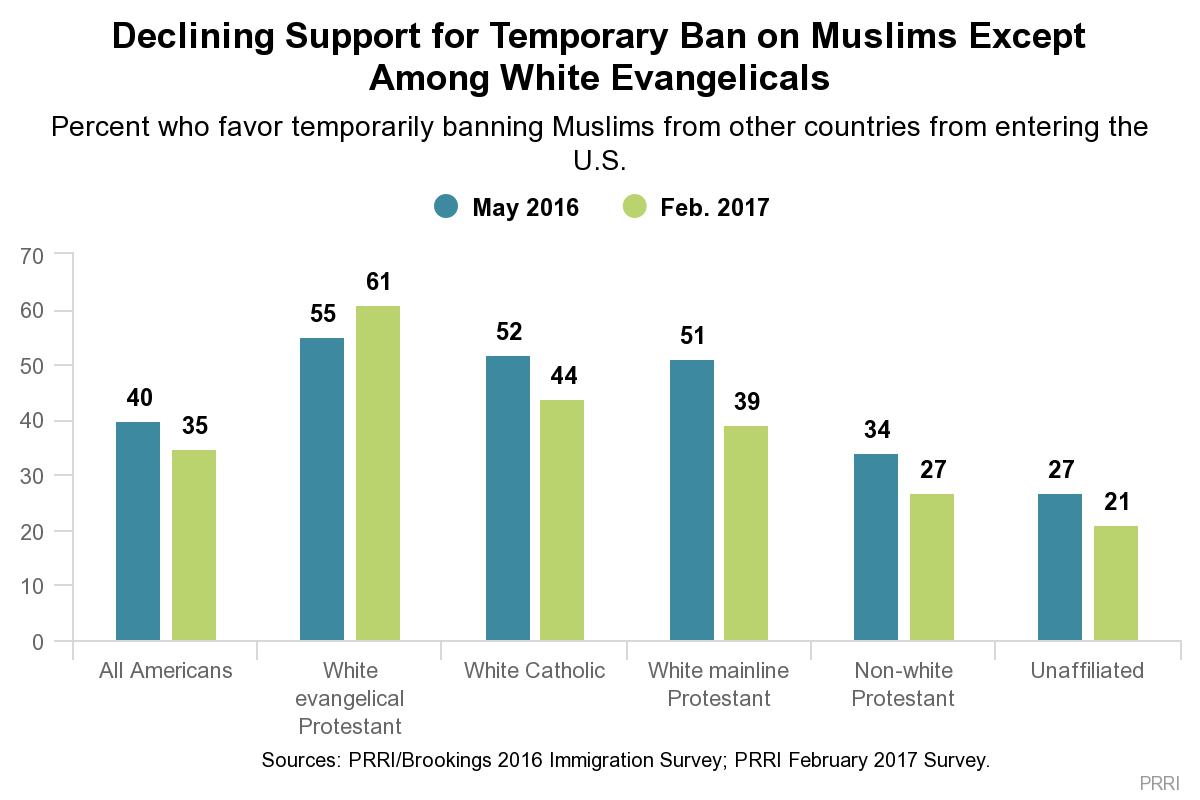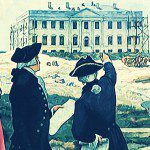I grew up in an evangelical home. I was homeschooled, and the area where we lived was very white, and very Christian. In spite of this, by the time I reached adulthood I likely had more personal experience with Muslims than most Americans.
When I was small, we lived in the next door apartment to a Muslim family from Pakistan. The husband was a pediatrician—we’ll call him Dr. Hussein. His wife wore a headscarf, and the children—three of them—were the same ages as my siblings and I. We played with them quite often, as small children who are neighbors will—I can still remember their names—and then one day they bought a house and moved. I remember that we visited, once, and my friends’ mother cooked Pakistani food.
While we fell out of contact with the family after this, we still saw Dr. Hussein regularly. My parents were new to the area when we lived next door, and when they learned that our neighbor was a pediatrician they felt no need to look further for a doctor for my siblings and me. And so it was, on the afternoon of September 11th, 2001, that I found myself in Dr. Hussein’s office for a regularly scheduled doctor’s visit. I will always remember that he was afraid—worried, unsure.
I remember September 11th, 2001, for other reasons as well. Our church encouraged us to “sponsor” international students. In practice, this meant that the church matched international students at a local university who were interested in learning more about American life with families in the church who were willing to have these students over for dinner and otherwise see with them regularly. They didn’t live with our family, but they visited frequently.
On September 11th, 2001, we had an international student from Kuwait. We’ll call him Abdullah. He was so worried about vigilante retribution for what had happened that he did not leave his apartment for several days. When my mother found out what was going on, she invited him to go out to dinner with us, at a restaurant. I will always remember how nervous he was. I think my parents invited him to join us in a public space because they wanted to ensure that he had supportive Americans with him when first venturing out in public, after what had happened.
And so for me, September 11th will always be associated not just with what happened in New York City, but also with my parents—and my mother in particular—reassuring the Middle Eastern Muslims in our life, whether a Muslim American like Dr. Hussein or an international student like Abdullah, and reaching out to them to make sure they knew we supported them.
I have other memories, too. My parents sponsored international students as part of an evangelical outreach effort, so from time to time their discussions with these students turned to spiritual matters. I remember a game of Chinese Checkers interrupted by heated discussion over whether Christians believed in one god or three. But most of what I remember is cultural rather than spiritual, such as when my mother was genuinely horrified to learn that Ali, an international student from Saudi Arabia, had never worn a seatbelt. We had picked him and Abdullah up to take them apple picking with us, and my mother told Ali that in her car, he would wear a seatbelt. He looked bemused as he fumbled with his seatbelt.
There was also the time Abdullah’s family came and visited—his mother, father, and sisters—and told us that with as many children as we had, we should buy a cow for milk. They gave us seeds, too—one of Abdullah’s sisters worked in an agricultural ministry of some sort—and we gave our garden an international zest that summer.
For some months Abdullah’s younger brother boarded with us while trying to improve his English for the TOEFL, an examination he needed to pass before he could enroll in university in the U.S. I remember him talking about driving corvettes in the desert—he loved corvettes.I remember that once, he asked my mom to interpret a dream he had had. I remember her surprise at a cultural difference she had been unaware of, and I remember how carefully Abdullah’s brother listened as she explained that in the U.S., most people believe dreams are simply the mind’s way of processing things.
There is a reason I say all this. Namely, this graph:

That’s right—support for banning Muslims from other countries from entering the U.S. is highest among white evangelical Protestants. Further, support for such a ban has increased among white evangelical Protestants in the past year, while it has fallen among other groups. When I saw this graph, my first response was lack of surprise—after all, white evangelical Protestants have overwhelmingly supported Trump, who has spent his campaign deriding Muslims and painting them as dangerous. But then I remembered my parents, and the experiences of my evangelical childhood.
I remember anger after September 11th, 2001, and my parents did support Bush’s invasion of Iraq in 2003, but I don’t remember my parents ever portraying Muslims as dangerous—at least, not during my childhood. When I was ten or so we knew a family through the international student ministry, a man and his wife and his two sons, who were around my age. I remember that the boys were afraid of our dog when they came to our house; I remember the boys leaving the room to go pray when we were at their apartment; and I remember a long summer evening spent catching fireflies and poking in crawdad holes. I also remember that my parents were sad when they left to return to Saudi Arabia, I think because of a visa issue.
Perhaps this is the nostalgia of childhood. Perhaps there were things that were said that I didn’t hear. But my experience growing up in an evangelical home—meeting and knowing Muslims and supporting them after September 11th—makes me shake my head when I look at the graph above. Yes, I grew up believing that Islam was a false religion (like every religion other than Christianity) and that Muslims needed the gospel. I don’t want to erase that. Still, that’s a far cry from wanting to ban Muslims from the country. Growing up in an evangelical home, I don’t remember ever seeing the antagonistic attitude toward Muslims that has become far too common today.
What happened? How did we get here?















